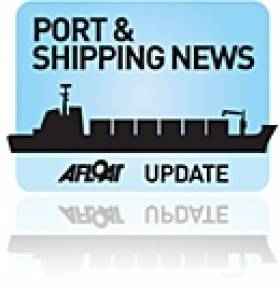Displaying items by tag: Dina Alliance
On board the 60m vessel there is an aft clear working deck space used for supplies which is capable of handling two 20ft reefer containers and a single 20ft storage container. The vessels' powerplant is provided by 2 x Caterpillar 3516B main-engines of 1920kW (5150bhp) at 1500 rpm which drive twin kort nozzles propellers and equipped with a corresponding pair of high-lift rudders.
Accommodation is for 42 berths (11 for officers and crew) and other marine personnel (numbering 31) in addition to two hospital berths. All of the cabins are air-conditioned with washrooms/WC.
Dina Alliance brings the Mainport Group fleet total to 24 vessels (for list click HERE) which are deployed in various sectors engaged in offshore support vessels covering safety standby, tugs, tanker assist, towage, bunkering and seismic support services.
Earlier this year the company's Foynes based tug Celtic Isle was requested to assist in refloating the stricken combi-heavy lift vessel Pantanel which had dragged its anchor in stormy seas after running aground in Cashla Bay, Rossaveal. The German-owned vessel was to load two former Aran Direct owned fast-ferries that operated from the Connemara harbour on a delivery voyage bound for Mauritius.
Mainport is a Cork based operation with offices located in Foynes, Limerick, Drogheda in addition to operations overseas in Durban and Johannesburg in South Africa and Aktau in Kazakhstan.
- Celtic Tugs
- Ports and Shipping News
- Aran Islands
- Aran Direct
- Rossaveal
- Island News
- North Sea
- Mauritius
- Mainport Group
- Cashla Bay
- Celtic Isle
- Dian Alliance
- Anchor handling tug supply
- AHTS
- Aran Islands fast ferries
- Pantanel
- Combicarrier Pantanel
- Mauritus
- shipgrounding Cashla Bay
- Supply Seismic Support Vessel
- North Sea energy reserves
- Dina Alliance
























































